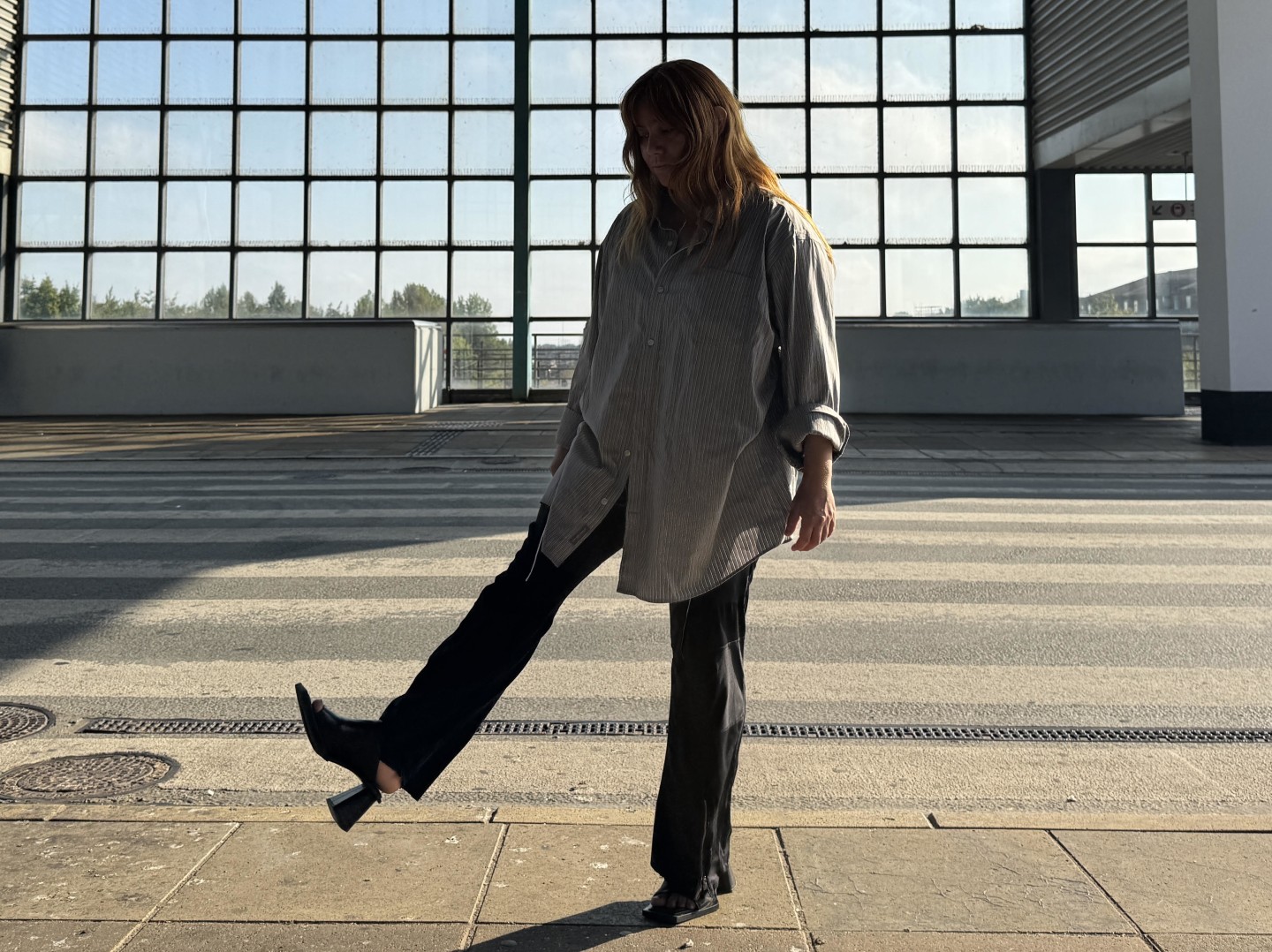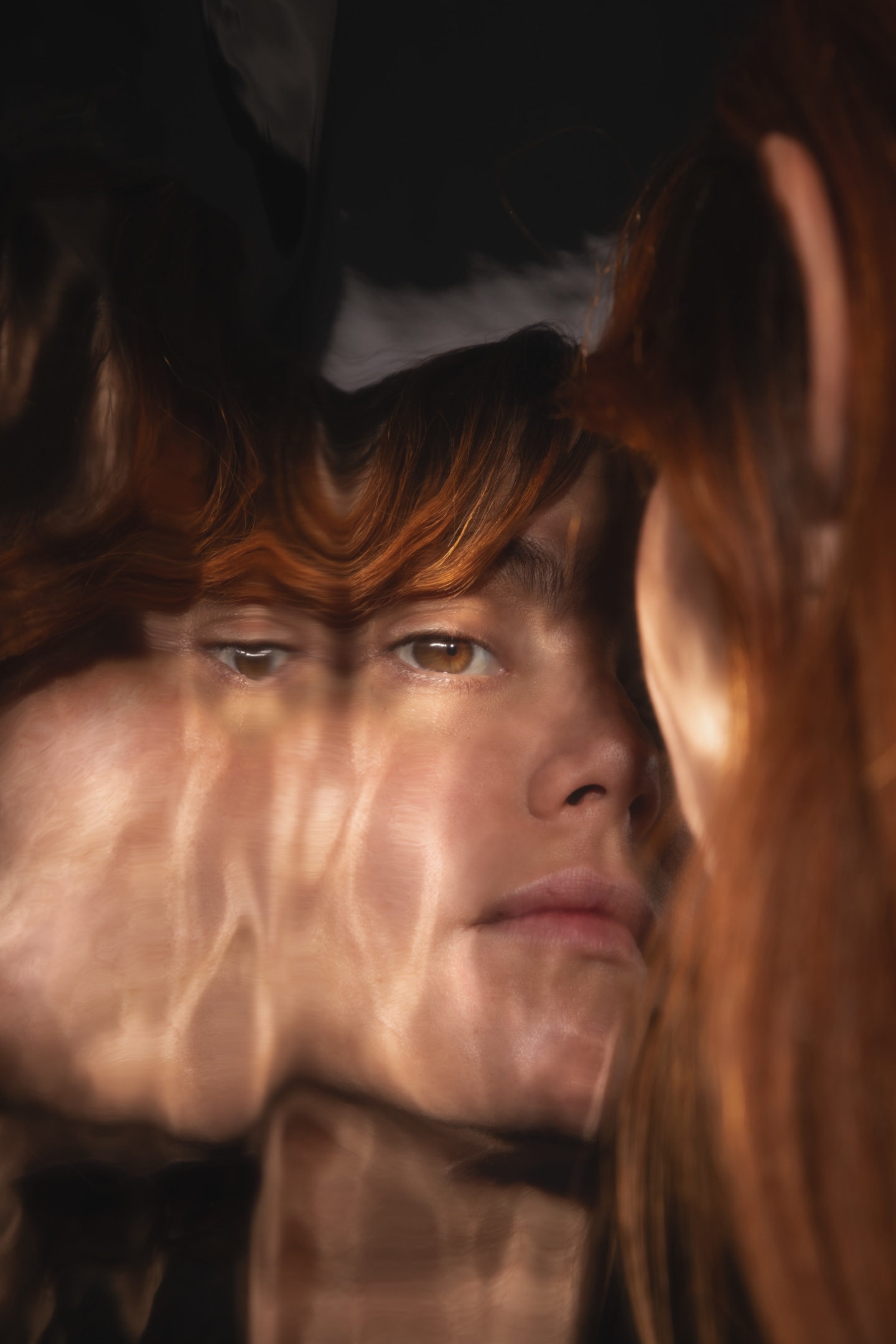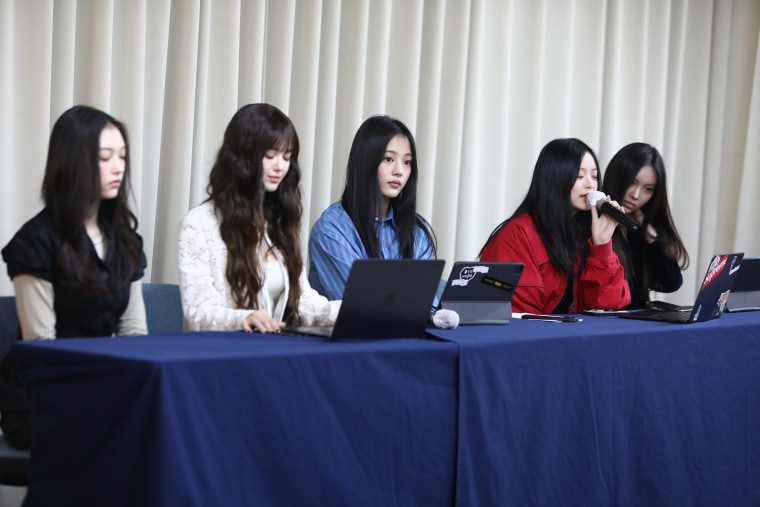Sarah Liisborg
Rebecca Molina’s debut album, When You Wake Up, was almost scrapped before it was finished. After emerging with two EPs, 2017’s Corpus and 2020’s Vanilla Shell, the 32-year-old Danish musician found herself in a funk; she felt the electronic pop songs she was making weren’t reflective of who she really wanted to be as an artist. Awkwardly, around the same time, “Hey Kids,” a song she’d recorded while drifting away from any feeling of purpose, started going viral, gaining millions of streams on Spotify. A stereotypical synth-pop track with crystalline keys and a lolling melody, it’s neither hard to see why it blew up in popularity, nor why Molina felt cold towards the material she was making at the time. “I began to feel disconnected from that rush [of making music,]” she says. “I had also become a perfectionist.”
It was the friends she knew from college — Astrid Sonne, Fine, and Clarissa Connelly — plus ML Buch with whom Molina performs live, that ultimately encouraged her to pursue something that felt more honest and true. Like those friends and collaborators currently making the Danish city such an essential hub for new music, Molina’s songs now take an experimental approach to the traditional singer-songwriter framework, blurring the lines with jagged textures and ghostly vocals.
When You Wake Up (out October 18), brings guitar to the front of her sound; Molina says she had to “get back in touch with her intentions” and picked up the instrument chiefly because she hadn’t played it very much, and therefore wasn’t hemmed into a corner while writing new songs. Combining that with digital production to create a warped take on the traditional fuzzy aesthetic, she crafted an album filled with the prospect of new life in multiple forms. In addition to feeling creatively reinvigorated, Molina was also pregnant during the writing and recording of the album. Lyrically, her words offer dewy and windswept observations on nature and the world her daughter was due to be born into. Speaking on a call from the Copenhagen studio she shares with Fine and Connelly, a small space where the walls are lined with synths and keyboards, Molina discussed having to reinvent herself to make her debut album, her circle of collaborators, and the benefits of having a song go viral unexpectedly.
THE FADER: What led you to taking an extended break from writing prior to making the album?
Ever since I started making music I felt a rush to come up with something and then just release it. Eventually I began to feel disconnected from that rush. I had also become a perfectionist; it was all about making things sound perfect and clean and smooth but I didn’t really know what I was doing. So I was releasing music that I wasn’t really happy with. So I decided to stop [releasing music] and work out why I love to make music. What I discovered is that I really love to have small improvised jam sessions with myself where I don’t but don’t have any plan. All there is is an openness.
Was there ever a point when you considered not going back to making music?
Yeah. I was really tired of feeling unfulfilled whenever I released something. I didn’t want to play live because it was so stressful trying to translate the records into a live performance and trying to connect with an audience, but maybe it was also because I didn’t feel connected with the music from the beginning. I considered producing for other artists but I also felt that something was missing when I wasn’t making music. There were a lot of big questions in those four years about how I wanted to work with music.

Nis Bysted
You wrote most of this album while you were pregnant. Which parts of the album remind you most of that time in your life?
I remember writing “I Am Your House” because I was so tired most of the time. I was really trying to make the whole process really comfortable for myself; I created a studio on my sofa. I just needed to chill and make music.
Do you remember what you were watching?
Some crap. Maybe some Real Housewives of Beverly Hills or something. Really not creative stuff. I had the sound turned off and just saw this drama on the television and wrote a heartfelt guitar song.
What else was on your mind at the time of writing these songs?
It’s mostly written starting from childhood and going through all of my memories and all the pictures in my mind. Because I was going through so many changes, many big questions popped up: Who have I been and who would I like to be when my daughter comes out?
I knew how the album was going to sound so I wanted to create lush imagery [in the lyrics] to create a warm contrast to the computer-based production.
“Organs” is a collaboration between yourself and ML Buch. What can you tell me about your relationship with her?
I had been working on “Organs” for years and it went through a lot of different phases. I had a version of it that I scrapped and re-recorded and mixed on my own. It was at that point that I asked ML Buch if she would write a bridge for the song. I just asked her to listen to the song and write whatever she felt. It’s a song about the end of summer and winter coming and how the body reacts to that change in the weather.
We have known each other since we studied together at the conservatory in 2016. We became friends really quickly, we have a lot in common.
It must be nice to have so many friends and collaborators to turn to in Copenhagen.
We have been really good at asking each other for help. With this album I was speaking with Fine, as well as Henrietta from Smerz, Erika [de Casier], plus Clarissa and Astrid.
We’re always talking but we never see each other play live because everyone is touring outside of Denmark. We’re really good at helping each other and supporting each other with our work, though. We like drinking tea and eating bread and listening to each other’s music. All of us are exploring something playful in our own way.
Your song “Hey Kids” went viral in 2019 and has been streamed more than 100 million times. What was that experience like?
It’s funny. Someone randomly took the song and put it on TikTok and then it just exploded.
How did that feel to have that success while questioning your material at the same time?
It was difficult but I also feel really privileged to have that many streams because then I get
to earn money on it and I make my album on the side. So I’m also trying to be really happy about what happened because it allows me freedom to make more music.
From a financial point, would you have been able to make When You Wake Up without “Hey Kids” going viral that way?
I think so, but it definitely helped me a lot, because then I didn’t have to have a cafe job [to support myself]. It certainly helped keep me calm and focus on my own work, as well as being able to look after my kid.




